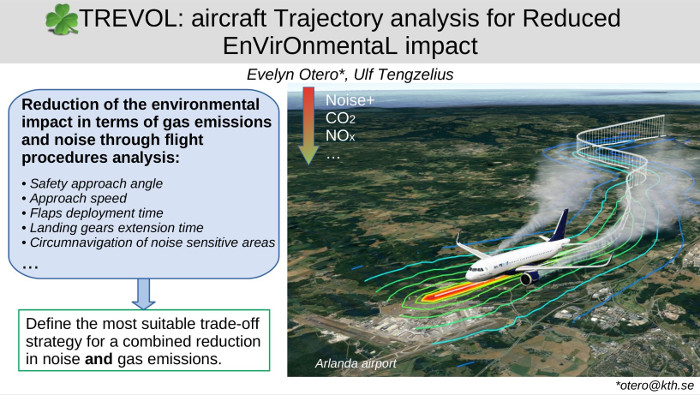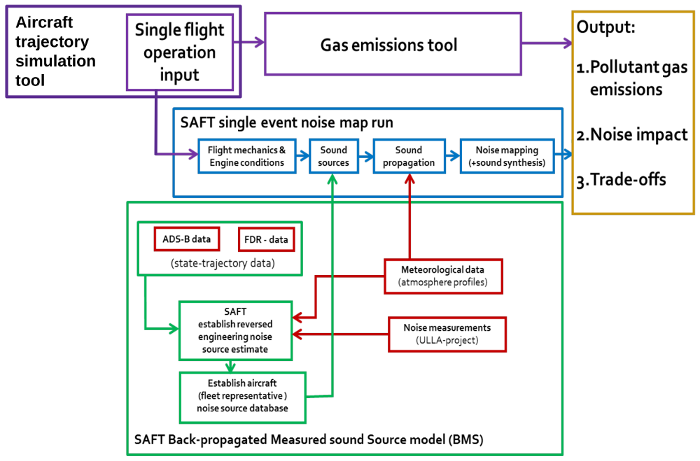TREVOL
(aircraft Trajectory analysis for Reduced EnVirOnmentaL impact)
The project focuses on reducing the environmental impact in terms of gas emissions and noise through flight procedures analysis. The final goal is to define the most suitable trade-off strategy for a combined reduction in noise and gas emissions.
Published paper , Slutrapport TREVOL
The project is based on aircraft trajectory simulation which is analysed for gas emissions and noise reduction with parameter investigation. The model is defined in terms of a rigid body flight simulation model in the form of a set of differential and algebraic equations. A module for emissions computation is integrated and is based on the Boeing Fuel Flow method. The engine exhaust emissions considered in this study affect both the climate and health, namely the carbon dioxide (CO2), carbon monoxide (CO), hydrocarbons (HC), nitrogen oxides (NOx), sulfur oxides (SOx), and water vapor (H2O). The developed model and tools will be validated against flight test data available for a reference configuration. The expected final tool (see figure below) combines the gas emissions module with the SAFT code for aircraft noise simulation previously developed within another CSA-project SAFT and under ongoing improvement in the ULLA and CIDER CSA-projects (BMS approach).
Based on this combined tool, the investigation will assess the impact of different flight procedures on noise and gas emissions. Optimal procedures will be defined for departure and approach, to reduce in the most effective way, both noise and gas emissions based on different weighing strategies. The project’s results may be beneficial and useful for operators and regulators aiming to change procedures in a way that reduces the environmental impact of air traffic and for the public in terms of health.
Project members




